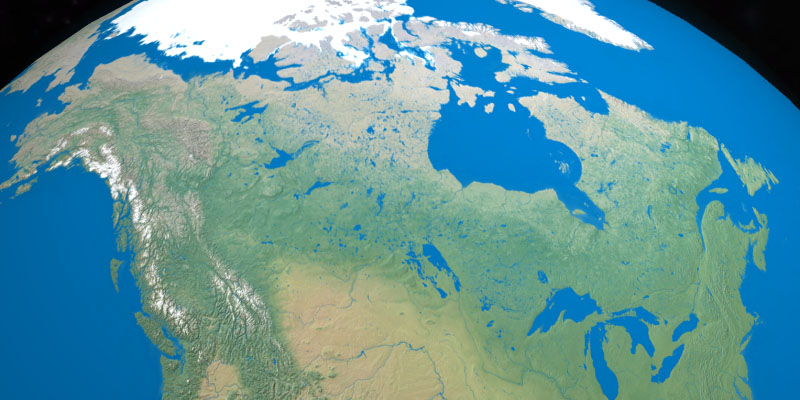Canadians enjoy high levels of environmental quality relative to other high-income countries

As Earth Day approaches, Canadians have much to celebrate. Canada’s environmental record is excellent compared to most of the world’s wealthiest—and cleanest—countries.
A new study published by the Fraser Institute compares and ranks 34 high-income countries in the Organization for Economic Co-operation and Development (OECD) on a wide range of measures including air and water quality, solid waste management, greenhouse gases and biodiversity.
This year, Canada ranks 14th overall out of 34 countries with a score of 69.9 out of 100—above the OECD average score of 65.5. Sweden is the top performer with a score of 81.5 and South Korea is the worst performer with a score of 47.5.
In particular, Canada performs well in air quality. To determine Canada’s air quality and its impact on human health, the study uses two measures. The first examines the extent to which people are actually exposed to harmful fine particulate matter (air pollutant that includes smoke, fumes, dust, etc.). Canada ranks 8th on this measure.
The second measure examines the portion of the population exposed to unsafe air pollutants as set by the World Health Organization (WHO). Canada ranks 6th on this measure, with 98.2 per cent of Canadians exposed to levels of fine particulate matter that comply with the air quality standard.
Canada also performs well regarding safety surrounding heavy metals, ranking 7th out of 34 countries, thanks to low lead exposure. Similarly, on agricultural measures, Canada ranks 3rd due to its remarkable fertilizer use (nitrogen) and 14th on pesticide use.
But what about where Canada ranks low?
In those cases, it’s often unavoidable due to factors beyond our control such as geography and climate. For instance, on carbon intensity, which measures CO2 emissions relative to the size of the economy, Canada ranks 32nd out of 34 countries. However, the ranking is a more a result of Canada’s massive size, cold climate (which demands more fuel for heating), long transportation distances and large natural resource sector. Many other OECD countries are smaller, have milder climates and higher population densities, resulting in lower daily energy needs.
Finally, it’s important to note that almost all high-income OECD countries perform well on nearly all indicators. Even when Canada ranks lower on any particular measure, there’s little difference between the top performers and us. For example, Canada ranks 19th on access to improved sanitation facilities with a score of 89 while Portugal ranks 10th with a score of 95, which is not much higher than ours.
Overall, Canadians should take pride in our country's high levels of environmental quality relative to other high-income countries. In areas where Canada ranks low, it’s often unavoidable due to our geography or climate, or because we compare ourselves against a peer group where everyone is doing well. Most wealthy developed countries have established sound environmental protection regimes, and Canada fares well when compared to the best performers in the world. That’s something all Canadians can celebrate this Earth Day.


